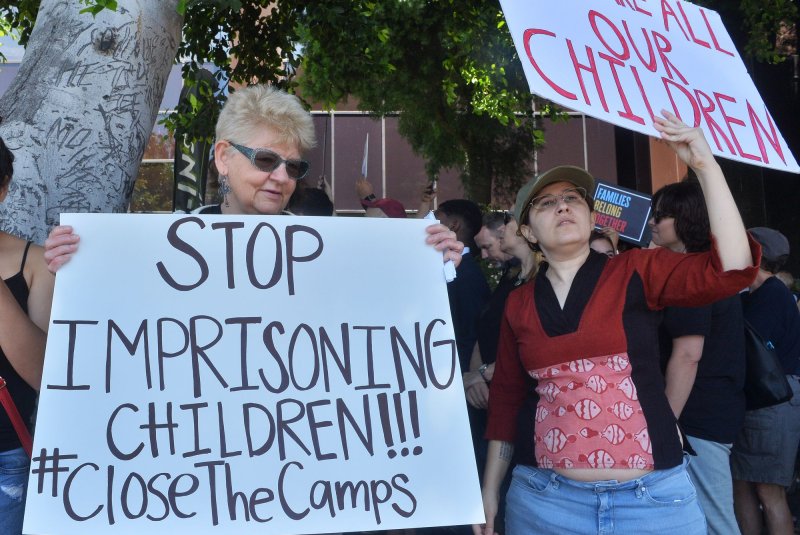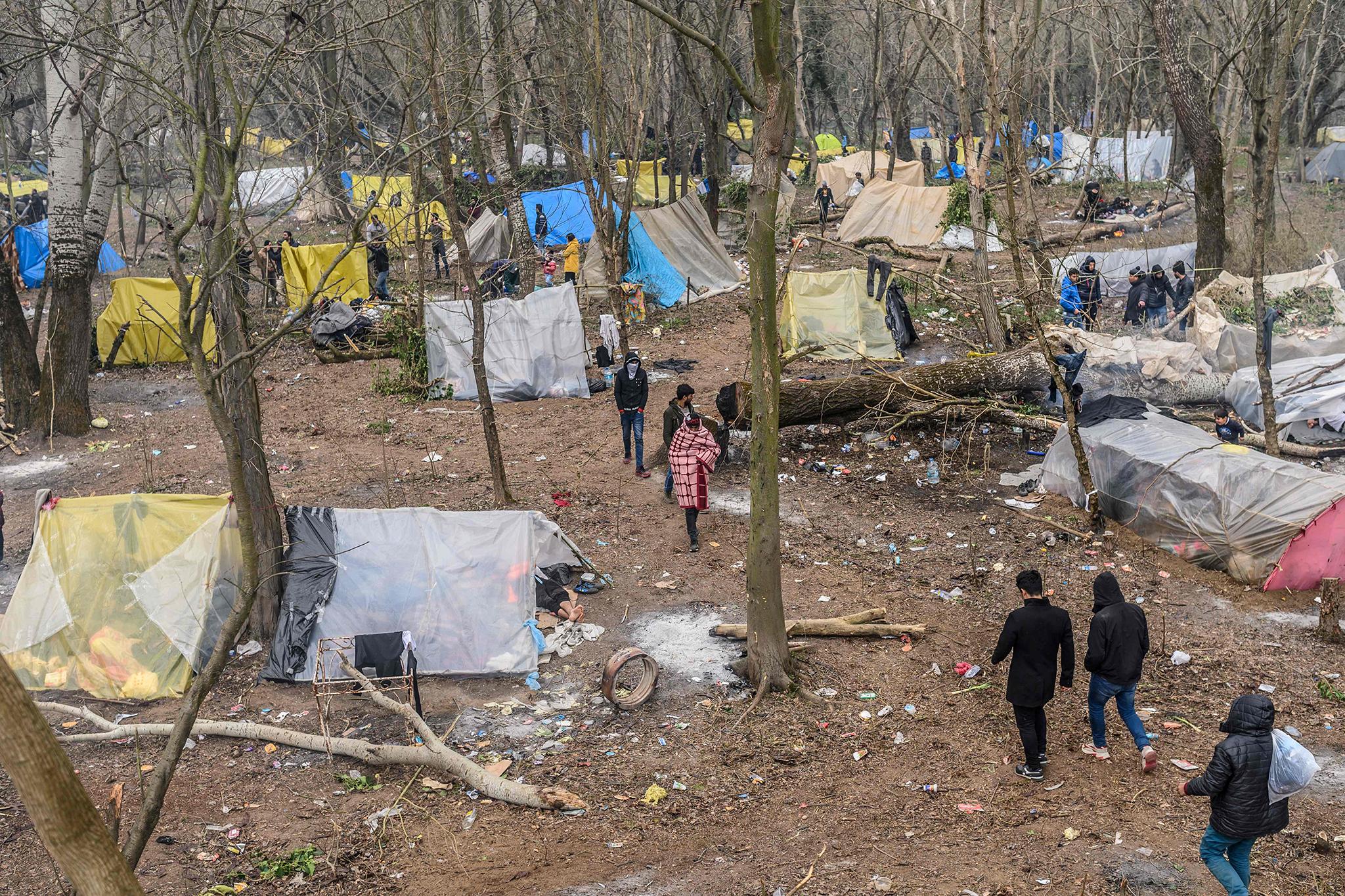
The inspector general for the Department of Health and Human Services
said senior Trump administration officials failed to prepare for migrant
family separations, making the reunification process more complicated.
File Photo by Jim Ruymen/UPI | License Photo
March 5 (UPI) -- Senior Health and Human Services Department officials didn't act on staff's warnings of an increase in family separations at the border, leaving the department unable to provide adequate care for separated migrant children, a watchdog report released Thursday said.
The HHS inspector general's office conducted the study in response to the Trump administration's so-called zero-tolerance policy implemented in spring 2018 in which all adults accused of illegally crossing the southern border were prosecuted. Because of that, officials separated children from their detained parents and housed them at facilities across the United States.
Court battles later required the federal government to reunify migrant children with their parents. The inspector general's office said it investigated how the government responded to the zero-tolerance policy and the order to reunite families.
It found that a lack of communication across interagency channels meant there was a lack of planning for how to handle a larger number of children separated from their parents.
March 5 (UPI) -- Senior Health and Human Services Department officials didn't act on staff's warnings of an increase in family separations at the border, leaving the department unable to provide adequate care for separated migrant children, a watchdog report released Thursday said.
The HHS inspector general's office conducted the study in response to the Trump administration's so-called zero-tolerance policy implemented in spring 2018 in which all adults accused of illegally crossing the southern border were prosecuted. Because of that, officials separated children from their detained parents and housed them at facilities across the United States.
Court battles later required the federal government to reunify migrant children with their parents. The inspector general's office said it investigated how the government responded to the zero-tolerance policy and the order to reunite families.
It found that a lack of communication across interagency channels meant there was a lack of planning for how to handle a larger number of children separated from their parents.
RELATED Court allows Trump administration to block migrants in Texas, N.M.
This "left the department unable to provide prompt and appropriate care for separated children when the zero-tolerance policy was implemented," the report said.
"Further, because no procedures or systems had been established to track separated families across HHS and [the Department of Homeland Security] for later reunification, HHS struggled to identify separated children."
One Office of Refugee Resettlement staff member told inspector general investigators they noticed an increase in children being separated from their parents a full year before zero-tolerance became the Trump administration's official policy.
This "left the department unable to provide prompt and appropriate care for separated children when the zero-tolerance policy was implemented," the report said.
"Further, because no procedures or systems had been established to track separated families across HHS and [the Department of Homeland Security] for later reunification, HHS struggled to identify separated children."
One Office of Refugee Resettlement staff member told inspector general investigators they noticed an increase in children being separated from their parents a full year before zero-tolerance became the Trump administration's official policy.
RELATED Supreme Court weighs due process rights of asylum seekers
"I said ORR was seeing much higher levels of separation, and that those separations were impacting particularly babies and young children," the staffer said. "I said this so many times that I was called a broken record.
Another ORR staffer told the inspector general: "I told them it was going to traumatize children to separate them unnecessarily. I said that to anyone I could."
HHS officials declined to act on the warnings, though, the inspector general report said.
"I said ORR was seeing much higher levels of separation, and that those separations were impacting particularly babies and young children," the staffer said. "I said this so many times that I was called a broken record.
Another ORR staffer told the inspector general: "I told them it was going to traumatize children to separate them unnecessarily. I said that to anyone I could."
HHS officials declined to act on the warnings, though, the inspector general report said.
RELATED Judge rules Ken Cuccinelli was unlawfully appointed to head U.S. immigration agency
During the reunification process, the inspector general report said it found "significant operational challenges," which were complicated by poor guidance from the HHS. Manual processes made the reunification vulnerable to error, the report said.
The report recommended that the HHS take steps to prioritize children's interests and well-being. The agency also recommended the department enter into formal agreements with the Departments of Homeland Security and Justice to ensure better communication going forward.
The inspector general based its findings on case reviews, more than 5,000 documents, and interviews with staff, officials and provider facilities.





